Your Final 10 Nights for Gaza – Automate your charity in the blessed last 10 nights of Ramadan.
Schedule your donationsYour Final 10 Nights for Gaza – Automate your charity in the blessed last 10 nights of Ramadan.
Schedule your donationsYour Final 10 Nights for Gaza – Automate your charity in the blessed last 10 nights of Ramadan.
Schedule your donationsYour Final 10 Nights for Gaza – Automate your charity in the blessed last 10 nights of Ramadan.
Schedule your donations24th January 2020
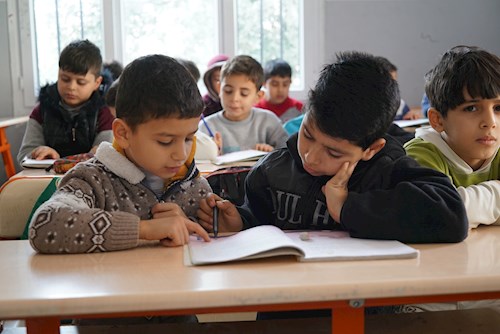
Every 24 January, the United Nations marks the International Day of Education, that promotes every child’s right to an education.
Human Appeal works to provide and improve education for thousands of children all year round. It’s not only a public good and humanity’s greatest resource, but it’s also our responsibility as Muslims to educate the next generation.
Helping children to stay in education gives tomorrow’s adults the tools they need to rebuild their countries, overcome hardship, fight poverty, sustain agriculture and support their families.
When a family has the resources to be able to send their child to school, it doesn’t just benefit the child, but the whole family, and their community’s economy and future.
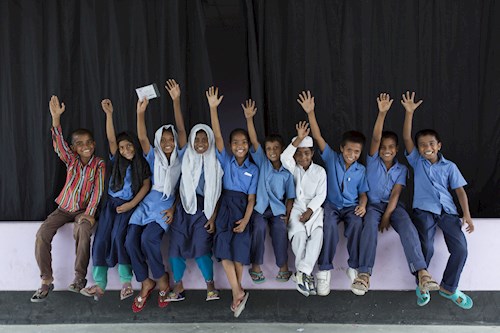
Since the school year began, we’ve been working with the World Food Programme to provide 75,000 Iraqi children with school meals. Across 241 schools, the children receive daily deliveries of fresh, nutritious food. This has also created jobs for 136 vulnerable men and women who help to prepare and deliver the food, and it supports 37 local food businesses.
For two years, we’ve been sponsoring the education of 1,238 Syrian children in Lebanon, covering the cost of their tuition, transport, books, uniforms, stationary and other school supplies.
Last year in Syria, we supported 3,351 children by rehabilitating 84 classrooms, and furnished 65 with equipment and learning tools, as well as providing sports equipment, playground toys and art. We also trained 157 educators, and provided 3,202 children with psychosocial support.
And when you sponsor a child with Human Appeal through our orphan sponsorship programme, you help to support their family with the cost of their food, clothes, and learning supplies, so that widows aren’t forced to pull their children out of school to make ends meet.
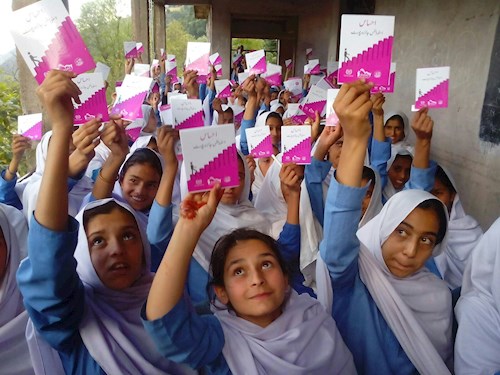
Discover two of our most recent projects in Pakistan. In Islamabad, we’ve just finished renovating Ghonsla orphanage, which provides a home, food, healthcare and education to 56 orphaned girls, and in District Bagh, we’ve equipped five schools with computer labs.
In renovating Ghonsla orphanage for girls, we constructed four rooms and six washrooms and installed electrics and cameras, giving the girls who live there a safe, happy home and the start that all children deserve in life.
One of Ghonsla’s residents, Samreen, explained,
All classes used to take place in a single space, and teachers struggled to deliver their classes with the noise. Today, each girl at Ghonsla has her own bunk and locker, classes are no longer overcrowded and disruptive, and there are only twelve girls to a bedroom.
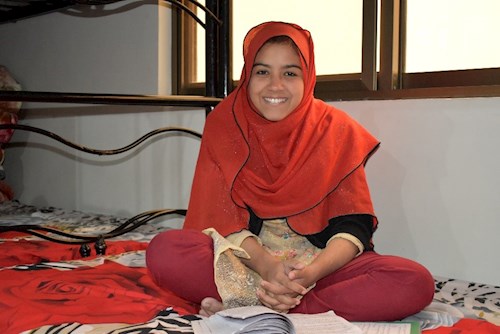
Your donations have helped us to provide some of the most vulnerable girls with an education, without worrying that they’re in danger just because they don’t have parents to protect them.
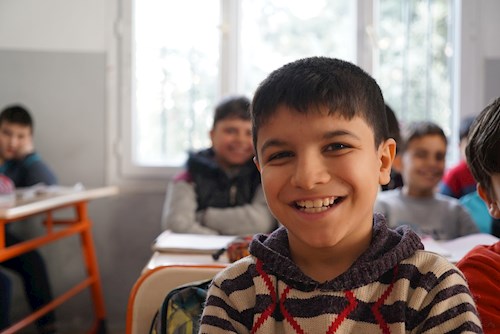
In District Bagh, students at many schools don’t have access to computers. We identified three girls’ schools and two boys’ schools that had teachers with I.T. knowledge, but lacked the facilities to educate students.
Human Appeal, in partnership with British Telecom, installed a computer lab in each of the five schools. We provided updated training to 550 teachers and helped them to develop skills to engage children in extracurricular activities.
This project provides access to advanced technology and the opportunity to develop critical and analytical skills to 1,100 students in rural areas, and will continue to benefit future students for several years. Many of the students we spoke to told us that they wanted to enter the technology field once they leave school.
Thank you for working with us to support education for all children.